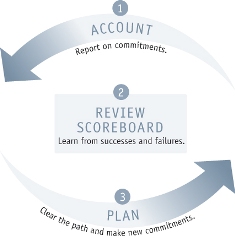In our last blog, we explored how it’s possible to become addicted to emotions. Today, we go a step further to uncover something just as critical: the refractory period — how long you remain emotionally reactive after an experience or event—and how this affects your personal well-being, leadership, and workplace culture.
What Is the Refractory Period?
Every experience leaves behind an emotion. That emotional reaction creates a chemical shift in your body. The refractory period is the length of time your body stays altered by that emotional response.
Think of the emotional highs and lows you’ve experienced—marriage proposals, the birth of a child, professional wins, devastating losses, betrayal, or bad news. These moments make a powerful impression. And they should. You take a mental snapshot, encoding the moment into long-term memory, and you associate it with a strong emotional charge.
But here’s the critical question: How long should you stay emotionally reactive?
The more intensely you feel an emotion, the more you narrow your focus to what caused it. When you stay in that emotional state too long, you begin to live from it. You stop responding to life as it is—and instead react based on a chemically-altered perception from the past.
Why It Matters
Many people get stuck here. Intellectually, they know they need to move on—but emotionally, they feel like they can’t. That’s addiction. If you’re unable to let go of an emotional state, you’re still addicted to it.
The key to emotional freedom is learning how to shorten the refractory period. That’s where emotional intelligence begins.
The average lifespan of an emotional chemical in your body is just 90 seconds to 2 minutes.
If you can simply pause—breathe—become aware—and choose not to act during those moments, you regain control.
%20-%20Breaking%20the%20Habit%20of%20Being%20Yourself%20-%20Dr.%20Joe%20Dispensa-1.png?width=220&height=235&name=CREATE%20DIFFERENT%20STATES%20of%20BEING%20(Refractory%20Period)%20-%20Breaking%20the%20Habit%20of%20Being%20Yourself%20-%20Dr.%20Joe%20Dispensa-1.png) Think back to the times you’ve said or done something in the heat of the moment and later regretted it. "I shouldn’t have sent that email." "I shouldn’t have said that." That’s what happens when we act inside the emotional refractory period.
Think back to the times you’ve said or done something in the heat of the moment and later regretted it. "I shouldn’t have sent that email." "I shouldn’t have said that." That’s what happens when we act inside the emotional refractory period.
Impact on Culture
Now imagine a whole team—or company—stuck in their emotional refractory periods.
When people unconsciously live in anger, blame, stress, or fear, they gravitate toward others who feel the same way. Emotional echo chambers form. Gossip grows. Teams fragment. Collaboration dies. This becomes the cancer of a culture—slowly eroding trust, unity, and innovation.
The opposite is also true.
A team that learns to recognize and manage emotional states can create a culture of clarity, resilience, empathy, and performance. It starts with awareness. It grows with practice.
Emotional Intelligence in Action
Emotional intelligence isn’t just about “being nice” or “understanding feelings.” It’s about recognizing how emotions shape behavior—and learning to regulate and redirect emotional energy toward intentional action.
That’s why we teach this process in Change Your Mind. Create New Results.
By helping your team identify emotional addictions, shorten their refractory periods, and shift their state of being, we unlock new levels of teamwork, communication, creativity, and accountability.
Call to Action
If your organization is stuck in cycles of reactivity, low morale, or fragmented culture, this is where the work begins.
Learning to manage emotional states is not a soft skill — it’s a strategic advantage.
Are you ready to shorten your team’s refractory period—and create lasting change?
Let’s talk. Contact Positioning Systems to schedule a free exploratory meeting
Growth demands Strategic Discipline.
 In a recent interview with Steven Spielberg shared, “The toughest thing for a director to do is to know what he wants, it’s not how to get what he wants, it’s knowing what he wants.” An envisioned future for a company and ourselves is critical to success. Most people live in the past. Your job as CEO, Chief Energy Officer, is to create a future vision for yourself and your company.
In a recent interview with Steven Spielberg shared, “The toughest thing for a director to do is to know what he wants, it’s not how to get what he wants, it’s knowing what he wants.” An envisioned future for a company and ourselves is critical to success. Most people live in the past. Your job as CEO, Chief Energy Officer, is to create a future vision for yourself and your company.
Building an enduring great organization requires disciplined people, disciplined thought, disciplined action, superior results, producing a distinctive impact on the world.
 Discipline sustains momentum over a long period of time, laying the foundations for lasting endurance.
Discipline sustains momentum over a long period of time, laying the foundations for lasting endurance.
A winning habit begins with three strategic disciplines: Priority, Metrics, and Meeting Rhythms. Forecasting, accountability, individual, and team performance improve dramatically.
Meeting Rhythms achieve a disciplined focus on performance metrics to drive growth.
Let Positioning Systems help your business achieve these outcomes on the four most Important Decisions your business faces:
|
DECISION |
RESULT/OUTCOME |
|
PEOPLE |
|
|
STRATEGY |
|
|
EXECUTION |
|
|
CASH |
|
Positioning Systems helps mid-sized ($5M - $500M+) businesses Scale-UP. We align your business to focus on Your One Thing! Contact dwick@positioningsystems.com to Scale Up your business! Take our Four Decisions Needs Assessment to discover how your business measures against other Scaled Up companies. We’ll contact you.
NEXT BLOG – The Toughest Thing – Knowing What You Want






.jpeg?width=150&height=135&name=Hand%20with%20marker%20writing%20the%20question%20Whats%20Next_%20(1).jpeg)

